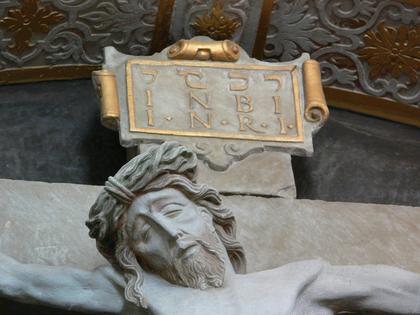The roots of the Easter story: Where did Christian beliefs about Jesus’ resurrection come from?
Published in News & Features
As Easter approaches, Christians around the world begin to focus on two of the central tenets of their faith: the death and resurrection of Jesus of Nazareth.
Other charismatic Jewish teachers or miracle workers were active in Judea around the same time, approximately 2,000 years ago. What set Jesus apart was his followers’ belief in his resurrection. For believers, this was not only a miracle, but a sign that Jesus was the long-awaited Jewish messiah, sent to save the people of Israel from their oppressors.
But was the idea of a resurrection itself a unique belief in first-century Israel?
I am a scholar of ancient Judaism and its connection to the early Christian movement. The Christian concept of Jesus rising from the dead helped shape many of the faith’s key teachings and, ultimately, the new religion’s split from Judaism. Yet religious teachings about resurrection go back many centuries before Jesus walked the earth.
There are stories that likely predate early Jewish beliefs by many centuries, such as the Egyptian story of the god Osiris being resurrected by his wife, Isis. Most relevant for Christianity, though, are Judaism’s own ideas about resurrection.
One of the earliest written Jewish references to resurrection in the Bible is found in the Book of Isaiah, which discusses a future era, perhaps a time of final judgment, in which the dead would rise and be subject to God’s ultimate justice. “Your dead shall live; their corpses shall rise,” Isaiah prophesies. “Those who dwell in the dust will awake and shout for joy.”
Later Jewish biblical texts such as the Book of Daniel also referenced resurrection.
There were several competing Jewish sects at the time of Jesus’ life. The most prominent and influential, the Pharisees, further integrated the concept of resurrection into Jewish thought. According to the first-century historian Josephus, the Pharisees believed that the soul was immortal and could be reunited with a resurrected body – ideas that would likely have made the idea of Jesus rising from the dead more acceptable to the Jews of his time.
Within a few centuries, the rabbis began to fuse together the earlier biblical references to bodily resurrection with the later ideas of the Pharisees. In particular, the rabbis began to discuss the concept of bodily resurrection and its connection to the messianic era.
Jews believed that the legitimate Messiah would be a descendant of the biblical King David who would vanquish their enemies and restore Israel to its previous glory. In the centuries following Jesus’ death, the rabbis taught that the souls of the dead would be resurrected after the Messiah appeared on earth.
...continued















Comments